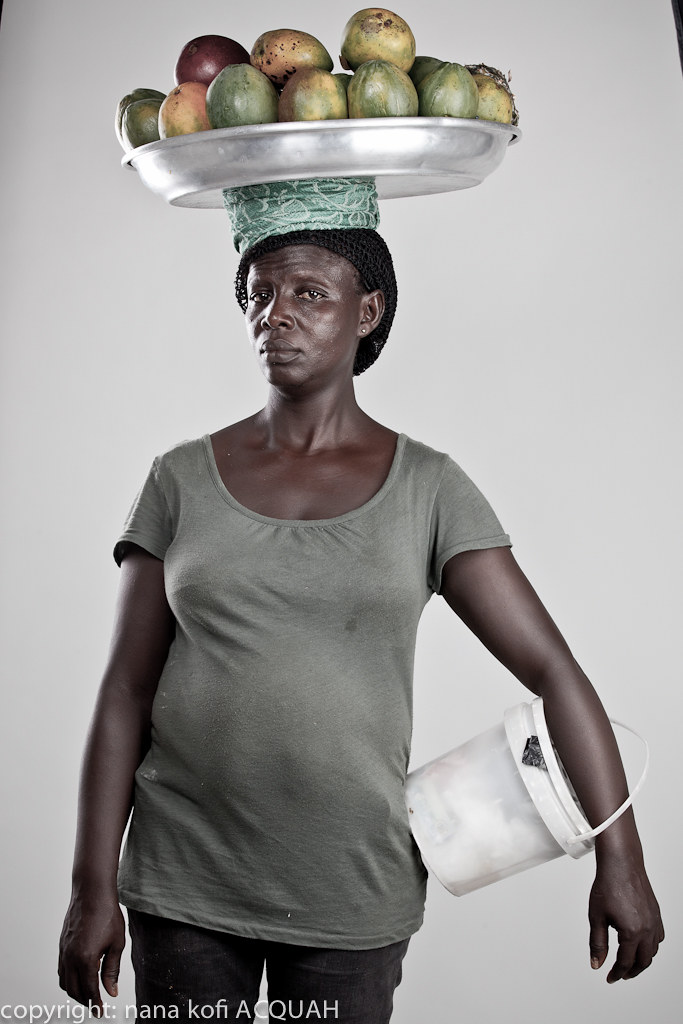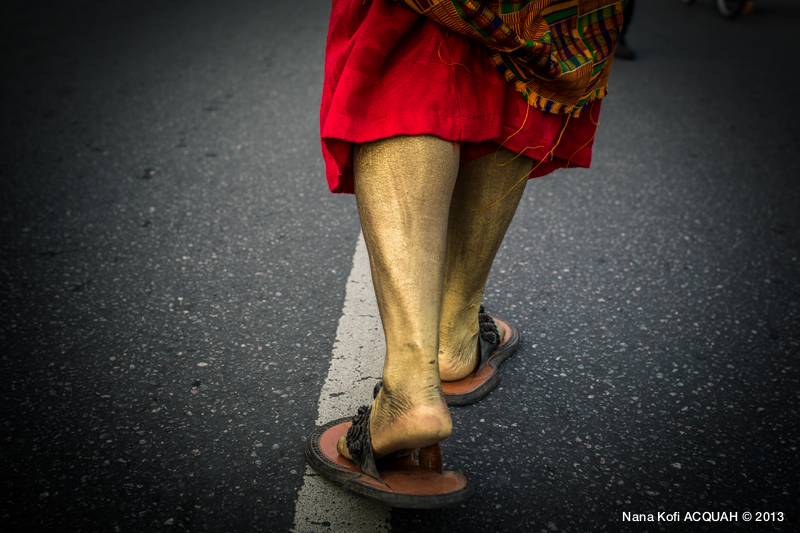The Photograph

Portrait from my HARDWORKING GHANAIANS Series #1
There’s fear that the ease of use and prolific nature of the digital camera threaten to choke life and value out of the photograph. There are more photographers today than there’s ever been in the relatively young history of this art form. A little over a decade ago, a photographer covered an assignment with two cameras, each loaded with 35mm film that holds only 36 exposures. Today, a digital camera with a four gigabyte memory card, can easily hold more than 500 exposures depending on file size and format. The lenses have become more sensitive to light and the strobes have gotten smarter at metering. The automatic nature of these modern cameras has made it possible to create a passably good photograph with relative ease as long as the photographer can “Spray and Pray”, “Chimp” and “Photoshop”.
To borrow from Economics, we seem to be at a stage where the abundant supply of visual imagery; particularly, the photograph has heavily driven down the price and value of both the photographer and their product. Whatever dire state the photograph(er) is in today, is also generally compounded by the swiftness with which people quickly move from amateur to professional. An occupation that once prided itself on apprenticeship has now managed to replace the master with pdfs, how-to-videos, and Idiot’s-guide-to-everything-photography”.
Fifty years ago, there were only two types of photographers in Africa: The ones who operated small studios where families will have their portraits done on special occasions, and the ones who worked as photojournalists for the press. Today, most families have their own digital camera and so take most of their special moments themselves or request the photographer to come home and cover the event for them. The studios mainly focus on passport-sized photographs now. Due to the poor quality of prints in most African newspapers, the photojournalist has always been shielded from critical examination. Though they’d been comfortable hiding behind blurs, improper registration of colours, horrible type-setting and cheap ink, the effect this has had on them is, they’ve been pretty stagnant. The average photojournalist in Africa, especially Ghana, whose situation I am most familiar with, cannot make one good exposure without “chimping” or slapping the subject with a high doze of flash, thus totally killing the ambience.
At the end of the day, however, the strength of the photograph, is its very lifeline. The photograph, above all things, is both a witness and an alibi to Memory. It’s a visual representation of the paths we tread and those who tread them with us. In each life, there comes the time to remember, to account, to prove, to enlighten; and at all these critical moments, the photograph comes into its own: Invaluable.

Comments
But isn't the lifeline of a picture relative to the consumer of that visual? Can this really be controlled?
Where I am from, some people can appreciate the invaluably captured moment but trust me, some will ask you "...why is this subject looking the other way?"
Trying to explain just kills the spirit.
Once again...portrait well done...hope she understands the elements of such a great piece.
Secondly, I understand that not all cultures grew up appreciating photography. For most people in Africa, it is a new language they have to learn. It has nothing to do with whether they went to school or not. The Photograph has never had a strong place in our visual history and so what we are doing now is trying to catch up.
I think though that the phrase - raise the water level in a harbour and all the boats float higher - applies to photography as well. The quality and professionalism that you (and N) bring to the photography game only serves to raise the standard, and appreciation of quality. The more that happens the better it ultimately is for photography.
Speaking of, aren't you the NK who has an exhibition opening tomorrow! :-)
The kind of photographer you describe can also be ferocious. I've had a few of them try to ruin my gig before. The worse part is, some of the guests assuming they are a part of your team and it gets embarrassing pretty quickly.
I love what N. is doing. I actually must call him NOW before I get into trouble.
Yes, we have an exhibition coming up :) Tomorrow at the Alliance Francaise.
That being said, you mentioned the demise of apprenticeships.. do you yourself offer apprenticeships? Perhaps that's what we really need - to revive the culture of being taught practically rather than just by reading.
thirdly, as much as photography is a new form of communication in the technological sense, i think perhaps it's more in line with African culture than books - because we are clearly visual people (teaching generations by mouth and action and telling stories through dance, y'know?)
finally, the events photographers could be a good thing if the instant event photo business is controlled properly. I would love to do that job, not for the instant money but for the instant appreciation of your work, y'know?